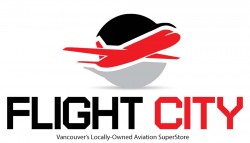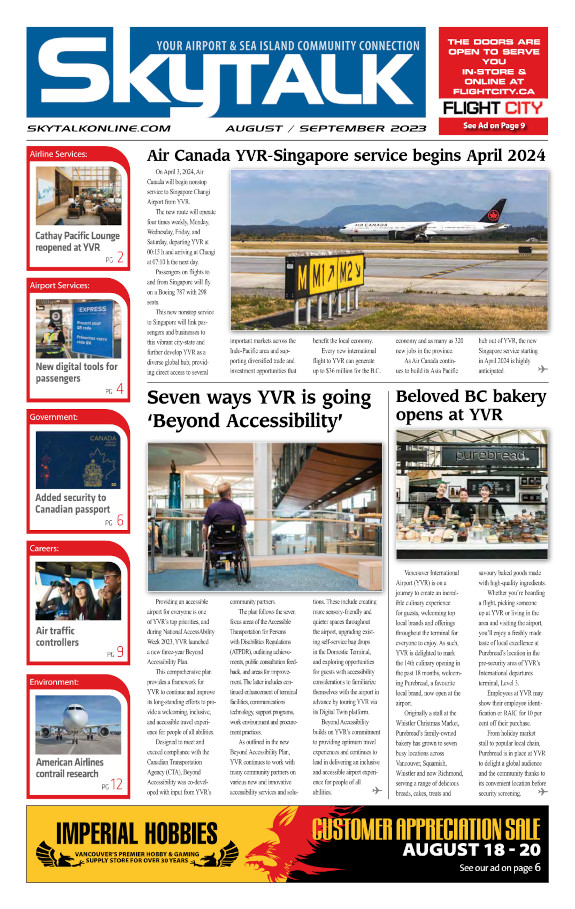
In a keynote address at the Greater Vancouver Board of Trade on Oct. 30, Vancouver International Airport (YVR) president and CEO Tamara Vrooman outlined how the airport has managed a post-pandemic recovery and achieved strong growth while maintaining operational resilience and enhancing the passenger experience, all of which positively impact provincial prosperity.
“A focus on harnessing innovation, advancing alternative energy, and embracing technologies that will allow YVR to become an integrated mobility hub is paying dividends when it comes to our airline partnerships, job creation, and connecting travellers to Canada and the world,” said Vrooman.
Focus on innovation heightens efficiency and service levels
YVR’s ‘Digital Twin,’ a virtual, real-time representation of YVR’s terminal buildings, airside operations, and facilities, provides YVR with a wide range of data, from real-time monitoring of passenger flows and airside operations to tracking the emissions of every single arriving and departing aircraft.
In July, YVR launched a pilot project with Vancouver-based A&K Robotics in which self-driving pods carrying passengers from security screening areas to gates are being trialled as part of federal and provincial Integrated Marketplace initiatives. The new technology is designed to provide another option for passengers of all ages and abilities to navigate YVR’s terminals independently.
YVR has also partnered with Air Canada to introduce secure biometric technology or ‘Digital Identification.’ The new process will streamline boarding for domestic flights, removing the need for Air Canada’s passengers to show boarding passes and IDs. YVR is the first airport in Canada to offer biometrics for Air Canada’s domestic flights, and the service is expected to begin mid-November.
YVR continues to advance energy transition plan
YVR is on track to invest $135 million to achieve net zero carbon emissions within the next five years. Today, YVR’s transition to renewable electricity and progress on its net zero carbon goals can be seen across virtually every aspect of its operations.
For example:
• Battery-powered eco-buses facilitate YVR passenger movements on the apron.
• YVR’s work with Moment Energy will support its continued EV charging network expansion.
• YVR now has more than 100 specialized airside chargers, which power more than 50 per cent of the airport’s licensed electrical ground support equipment (eGSEs).
• In partnership with the provincial government, YVR is delivering the BC Low Carbon Jet Fuel Incentive Program, the first of its kind in Canada. The program will offset the higher cost of low-carbon jet fuel and encourage its adoption.
Economic indicators also remain strong:
• In 2023, YVR facilitated $22 billion in province-wide economic output. This includes YVR operations, combined with cargo handling and tourism, an increase from the $20 billion YVR contributed in 2018;
• YVR recorded the second-highest cargo volume—320,000 tonnes—in the airport’s history, approaching the airport’s highest volume of 338,000 tonnes in 2018;
• 2023 was YVR’s best year of revenue and second-best year on record for earnings;
• YVR welcomed 24.9 million passengers in 2023, a 31 per cent increase (or 5.9 million more) than 2022; and
• YVR has been reassessed by S&P and Morningstar DBRS and continues to enjoy the best credit rating of any airport in Canada.






